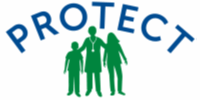At present there is no medical cure for ulcerative colitis. All current therapies are directed to reducing or eliminating inflammation and in so doing symptoms improve or go away entirely. Ideally the colonic lining actually heals and returns to a normal appearance though even in those cases the disease has not gone away. The mainstay of therapy for initially mild to moderate disease are medications called aminosalicylates. These medications are taken orally and present the active ingredient to the colon. They are effective in improving symptoms in 60-70% of patients and causing remission in around 50%. These medications can not only induce a remission but may be used to maintain a remission. Side-effects can include headache, abdominal pain, nausea, rash, and occasionally actual worsening of colitis symptoms. More unusual side-effects include pancreatitis, hepatitis, bone marrow suppression, and lung toxicity.
For those individuals with more moderate to severe disease therapy with the corticosteroid prednisone is often used initially. Prednisone is effective in reducing or elimination symptoms in over 80% of subjects. However, prednisone use is generally short-term (3 months or less) and ideally introduction of an aminosalicylate is successful and the prednisone dose is tapered and then stopped. About 50% of children who start prednisone and who improve will have worsening of their symptoms when the prednisone is stopped. This is called prednisone dependent. It has nothing to do with the prednisone itself but rather with the disease being more severe. In these cases doctors often use other medications called immunmodulators (azathioprine, 6-mercaptopurine, methotrexate) or an antibody to TNF-a (a chemical that facilitates inflammation in the bowel) called infliximab (Remicade) to maintain remission off prednisone. Remicade can also be used for cases where the UC continues to be active despite use of prednisone.
Close monitoring is warranted when any of these medications are used.
There are times when the UC is not responsive to medications and surgery (colectomy) is required. This occurs in less than 10% of patients in the first few of years after diagnosis but may be up to 20% within 5 years. As new treatments become available these numbers are expected to decrease.
